#Suli
Text
Nincs már türelmem az emberekhez.
#türelem#emberek#idő#ideges#idegesség#idegesítő#lassú#gyors#elegem van#kuss#magyar#magyar tumblr#magyar tumblisok#érzések#igazságtalanság#személyiség#belső#beképzelt#öntelt#talpnyaló#suli#középiskola#ismerkedés#saját
122 notes
·
View notes
Text
Literally nobody ever in any place or any time:
My brain in the middle of the night:
Inej’s POV chapters and experiences as described through other characters highly suggest that Suli is a spoken language only, not a written one. It would make sense for Suli to be a spoken language only, because the Suli people have little cause to write to each other since they travel together and the groups and families they travel with would appear to be the people they have contact with the most. Inej is fluent in both Suli and Ravkan, which makes sense since she primarily grew up in Ravka - with some of the roads her family travelled taking her through Northern Shu Han, but not very often. Following the assumption that the Suli people originated from Ravka, which the descriptions of both Inej and Zoya’s backgrounds would suggest, the need for the Suli people to speak Ravkan is apparent: they may have existed as a secluded and separate people to the Ravkan population, but over time as both cultures changed and evolved it became necessary for at least a certain level of integration - common with most cultures in our history. It appears that most Suli people are fluent in Suli and Ravkan, whilst very few Ravkan people can speak Suli. This highlights the common racism and prejudices against the Suli that are highly institutionalised in the country, particularly emphasised by Inej’s apprehension to meet members of the Ravkan government in Crooked Kingdom. Inej is also fluent in Kerch, and this is the language she primarily uses in Six of Crows and Crooked Kingdom to communicate with the Crows, since it’s the one language they all share. However, what’s important to note here is that she cannot read Kerch - or at least she couldn’t before joining the Dregs; since she writes notes to Kaz she has presumably learnt to in more recent years. When she is first sold to the Menagerie, we as the reader know that she has at least some understanding of Kerch because she knows what Tante Heleen is saying, and even if she wasn’t fluent at the time she would pick the rest of the language up quickly over the course of a year, and is able to communicate easily and fluently with Kaz when they meet. What she does say at this time, when she would appear to be fluent in spoken Kerch, is that she cannot read it. She tells Kaz that she couldn’t read the contract Heleen made her sign, and when he shows it to her she is still unable to - he explains it to her in terms of the numbers, which she can understand (that links to a interesting theory about their alphabets and numerical systems, but is a bit of a tangent right now). For most people, learning another language relies on writing it down and learning to comprehend words written on the page before entering open conversation, but Inej has clearly learnt by speaking and listening instead; indicative that this is how she learns in her native tongue. Kaz also promises that she will be able to read her contract with the Dregs, and for that he has it written in Ravkan. Not Suli, Ravkan. Now yes, we did previously establish that few people outside the Suli community learn the language - in fact a student at the little palace in the first Shadow and Bone book calls it a ‘dead language’ - but the fact that Kaz was willing to track down a Ravkan translator (we know he is monolingual) in a city with such a low Ravkan population (as confirmed by Nina’s experience in little Ravka in Crooked Kingdom) suggests to me that if it could have been written in Suli, Kaz would have been willing to track down a Suli translator for her.
#i have way too much time on my hands#grishaverse#six of crows#crooked kingdom#leigh bardugo#inej ghafa#kaz brekker#jesper fahey#nina zenik#wylan van eck#matthias helvar#kanej#Suli#zoya nazyalensky#ravka#languages
831 notes
·
View notes
Text
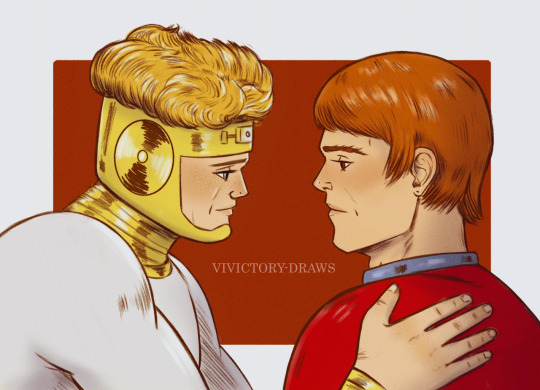



Some New Gods art, including a lightray/orion panel redraw as well as an older darkseid and suli panel redraw (which I'm reposting because I changed suli's eyes. Original panels under the cut
✨please do not repost or use in any AI programs✨

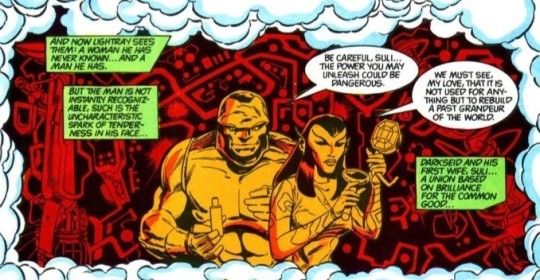
#dcmultiverse#dc fanart#dc art#new gods#fourth world#orion#lightray#lightron#grail#darkseid#suli#my art
22 notes
·
View notes
Text
ok so honestly, I never thought there would ever need to be a post about this but here we go. I absolutely admire ALL fanartists that decide to draw or paint my favourite characters. love all the techniques artists use, and the hardwork they put in is so commendable.
I've seen so many arts of inej and they are all truly wonderful. but what irks me is the way her skin tone is painted. she is Suli. she has brown skin.
her skin colour, the way I remember it, is literally compared to bronze metal. and yet, I've seen so many arts where people paint her as light skinned. I've seen kanej arts where there is very minimal difference between her and kaz's skin colour (and Kaz is described to be paler than an average Kerch, which is really saying something).
Inej is Suli. She has brown skin.
Inej is Suli. She has brown skin.
#just saw one a few minutes a go and felt the need to post this#its sad how inej's trauma is erased#but now theres so many arts disregarding her skin colour#again#no hate to the artists who put in so much work to make such beautiful pieces#i truly love you all and treasure you all and you are gems in the fandom#but pls be considerate of such integral parts of the characters you are drawing is all im saying#inej ghafa#suli#six of crows#grishaverse
35 notes
·
View notes
Text
Ezeken a szürkés hideg őszi napokon semmi mást nem csinálnék, csak áthívnálak, a válladon kibőgnék mindent magamból, aztán egy forró csoki társaságában bebújnék a puha ágyamba és aludnék veled 3 napig
#saját#szerelem#fájdalom#szeretlek#sírás#kapcsolat#veled akarok lenni#ősz#szar kedv#szar nap#ehh#elbaszott hangulat#suli#nem akarom#hiányzol#meg akarlak csókolni#hiány#manó#nyctophobia
303 notes
·
View notes
Text
Mikor veled álmodok jövök rá, hogy még nem vagyok túl rajtad.
#szerelem#magyar#magyar tumblisok#magyar gondolat#gondolatok#suli#szeretlek#álomvilág#álomkép#csak egy álom#álom#saját érzelmek#érzelmeim#mit érzel#régen minden jobb volt#régen itt voltál
455 notes
·
View notes
Text
I had thoughts!!
In the Shadow and Bone series, we see both Matthias and Inej kill someone. And after, they both pray to their respective deities
But they're both very different
The Fjerdan prayer is, "Djel absolves me, I am clean" (or something to that effect, I could be paraphrasing)
Whereas the Suli prayer (and I'm just assuming it's the general prayer for anyone who believes in Saints as well) is, "May the Saints receive you and forgive what can be forgiven."
This has given me the thoughts
The thoughts are: this really shows the difference between the two cultures. The Fjerdans don't pray for the soul they've sent to the afterlife, they pray for themselves. They make sure all their sins are washed away. Not forgiven. Washed away. And most Fjerdans don't think their sins are bad enough to be forgiven, especially concerning the stuff they do to Grisha
The Suli, on the other hand, pray for the soul they've sent to the afterlife. They grow up learning about second chances and giving them out freely. They ask that the Saints, "forgive what can be forgiven", which shows that while they aren't optimistic beyond reason (they know not all sins can be forgiven), they still believe the Saints can forgive. They believe in forgiveness rather than the almost 'concealing evidence' way the Fjerdans pray
I don't know, this isn't particularly well-thought-through, I just thought of it while helping my Ouma cook 🤷♂️
#shadow and bone#shadow and bone s2#six of crows#six of crows headcanons#fjerda#suli#soc#s&b#tw killing#tw mention of killing
39 notes
·
View notes
Text
“She’s the Darkling’s prisoner,” said Ivan, “and a traitor.”
“Maybe on land,” the girl shot back.
Ivan gabbled something in Shu that I didn’t understand. The giant just laughed.
“You speak Shu like a tourist,” he said.
“And we don’t take orders from you in any language,” the girl added.
Siege and Storm, Chapter 2
“So hypothetically,” Kaz said, “you might be addressed as Your Highness.”
“And a variety of more colorful names. Hypothetically.” The privateer cast him an assessing glance. “Just how did you know I wasn’t who I claimed to be, Mister Brekker?”
Kaz shrugged. “You speak Kerch like a native—a rich native. You don’t talk like someone who came up with sailors and street thugs.”
Crooked Kingdom, Chapter 30
“Perhaps I should try to take that crown instead,” suggested Nikolai.
Adrik sniffed. “Do you even speak Fjerdan?”
“I do. So badly a nice man named Knut once offered me a sizable ruby to stop.”
Rule of Wolves, Chapter 12
Zoya reached for the words her father had taught her, that she hadn’t
spoken since she was a child. Even then, they had only been whispered. Her mother hadn’t wanted Suli spoken in their house. “Mati en sheva yelu.” This action will have no echo.
The phrase felt sticky and unfamiliar on her tongue. She sensed Nikolai’s surprise, felt the stares of the others.
“You speak Suli like a tax collector,” said a man’s voice.
Rule of Wolves, Chapter 28
#grishaverse#shadow and bone#siege and storm#ruin and rising#king of scars#rule of wolves#zoya nazyalensky#zoya nabri#tamar kir bataar#tolya yul bataar#crooked kingdom#grishaverse language#fjerdan#shu#suli#Kerch#Kaz Brekker
11 notes
·
View notes
Text
„Néha olyan minden mint egy illúzió….“
#magyar iras#fájdalom#szomorú#sírás#elegemvan#magyar#magyar idézet#mindig ez van#suli#nagyon sajnálom
114 notes
·
View notes
Text
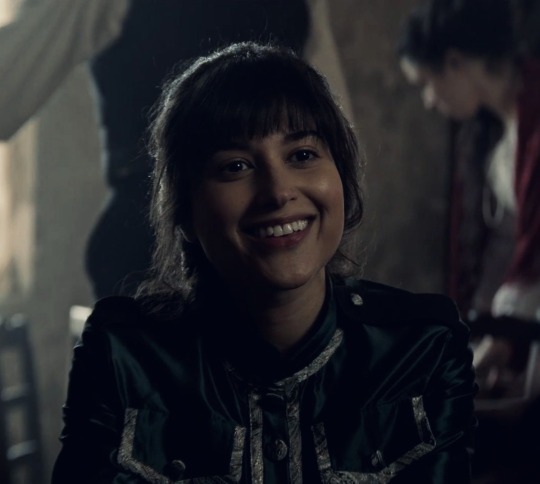

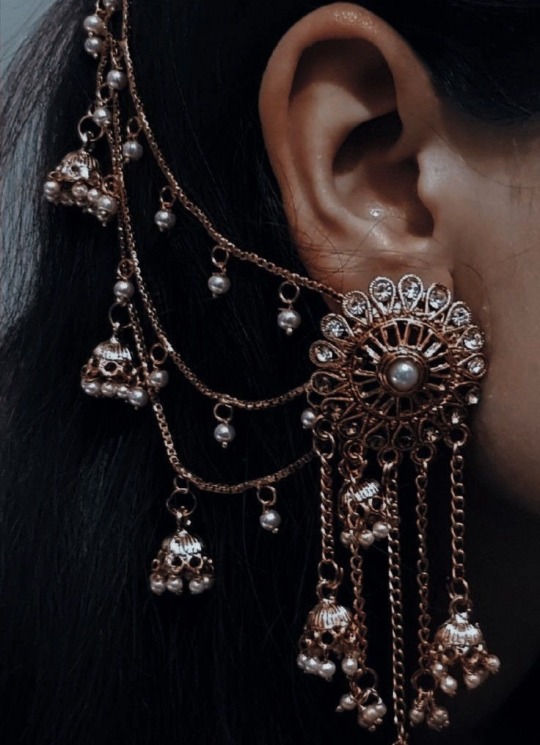

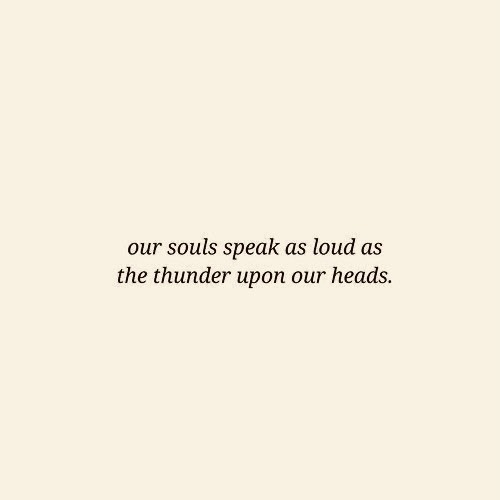
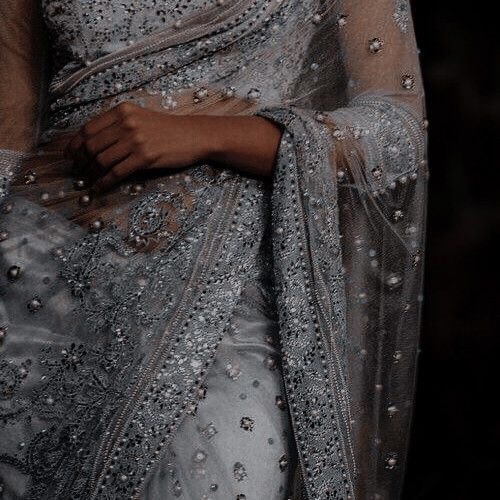
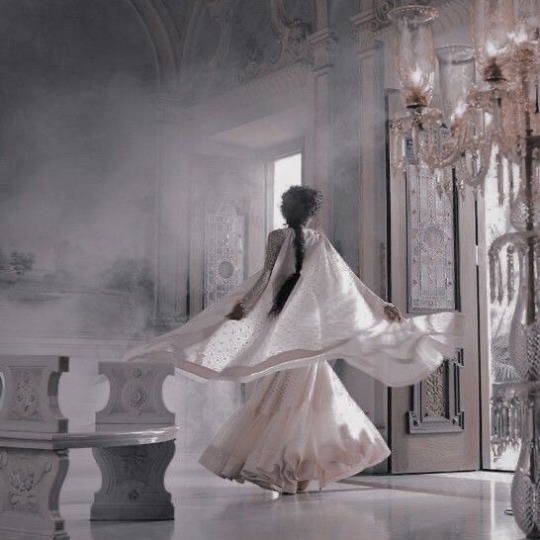
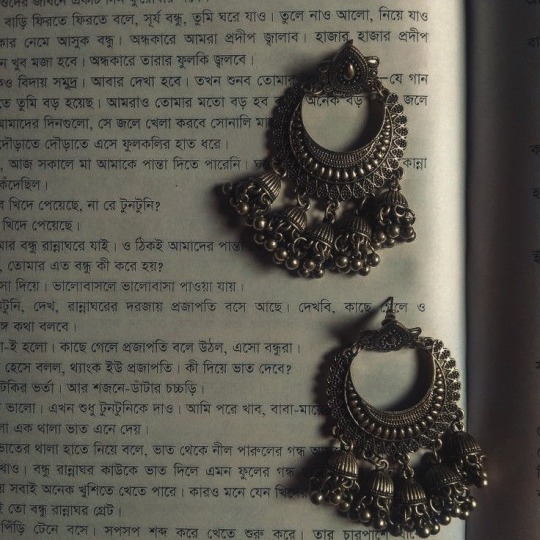
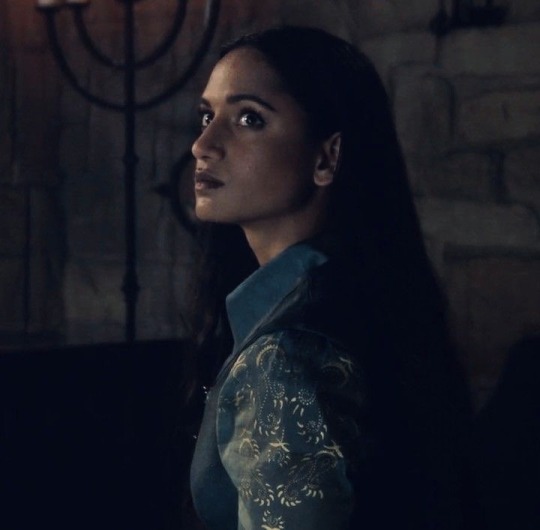
Suli : aesthetic
#grishaverse#zoya nazyalensky#inej ghafa#getting desi depiction through them was life changing fr#king of scars#queen of storms#six of crows#the wraith#suli#grishaverse moodboards
33 notes
·
View notes
Note
Lol why tf u mad that Inej “murdered two people of an oppressed minority” (lol) when she’s Suli and it’s said explicitly that Suli have been treated like trash by Ravka, she has no loyalty to that swamp
Eh, because she literally broke into their home- the only safe place they were supposed to have- with specific intention to kidnap and sell into slavery another member of said minority and helped to get in another guy, who was there just to kill its inhabitants?!
The fact she's Suli doesn't give her a pass on murder of other minorities? Or another forms of violence against other opressed groups? It doesn't make her automatically right and unable to be chauvinist trash herself?! Because treatment of Suli in Ravka doesn't say anything about Grisha?! Because another of so called heroes is both Suli AND Grisha and no one seems to mind, so even if your point about Ravka was valid in some way, it hardly applies to Little Palace?!
Because wrongs done by a third party doesn't excuse your agression against others or even entitle you to it?!
Bacause being member of distrusted group doesn't give you any right to break into other people's houses with violent intentions- people, who's done exactly NOTHING to you?!
#reply#Shadow and Bone#season 1#Inej Ghafa#Pavel & Polina#Little Palace#Grisha#Suli#Ravka#grishanalyticritical#anti S&B writers#I won't tag anti Inej#because I'm only anti writers.#They did her dirty.
83 notes
·
View notes
Text
Amikor érzed magadon a tekintetét.
#szemek#kíváncsiság#érdeklődés#érdekes#zavar#zavarba jön#szégyenlős#önbizalomhiány#tekintet#szemkontaktus#fiatalság#emberek#suli#középiskola#érzések#ismerkedés#lehetőség#magyar#magyar tumblr#magyar tumblisok#vonzalom#vonzó#elbűvölő#saját
12 notes
·
View notes
Note
hi! i just saw your analysis of the “treasure of my heart” quote and omg you have a GIFT for analysis! In that post you mentioned the “Rare Spices” billboard Inej talks about in CK; I’d love to hear more of your thoughts on that!
Hi, thank you so much!!! I personally think that the “Rare Spices” advert is one of the most important pieces of information we get to further both worldbuilding and charactisation, so let’s talk about it.
The advert is massive sign painted on the side of a warehouse in Ketterdam, near Sweet Reef, and alongside the words “Rare Spices” it depicts two young Suli women in “scant silks”, mimicking those that Inej was forced to wear at the Menagerie. When she’s first liberated from Tante Heleen, Inej begins to explore Ketterdam and one of the first things she sees beyond the city centre is this advert. It terrifies her. It terrifies her so much that she stands there just staring at it for an unspecified amount of time, before turning and running back to the Slat faster than she has ever run before. In fact, it terrified her so very much that she has a nightmare about the girls on the billboard that night. In Inej’s nightmare the girls come to life but are trapped in the paint, banging on the billboard to get her attention to ask her to free them, whilst she is powerless to help them. Inej at the time comments on the horror of seeing this scene mere miles from where “the rights to her body” were bought and sold and haggled over (I think most of that is quotation but I don’t have my books to hand so I’m not 100% sure), and it tells us so much about how the Suli culture is exploited and fetishised within this community; whether it’s Ketterdam, the rest of Kerch, or the world at large (we could argue this is highly implied through Zoya’s POV, but it’s a whilst since I read KoS and RoW so if anyone wants to weigh in on Zoya in this then please do I’d love to read it 😁).
In my post where I mentioned the Rare Spices poster I was specifically focusing on the way Inej’s culture was sexualised for the purpose of being at the Menagerie, and how we know that other cultures are appropriated and fetishised by the Pleasure Houses as well (the Fjerdan girl at the Menagerie wears the wolf mask, an animal sacred to her people, and Nina wore a fake Kefta that was made in Kerch and is described to be a pale imitation of real Ravkan-made Kefta). But for Inej, up to the point of seeing this sign, that was a small part of the world; the actions of the few, a localised evil that she understood to be the opposite of the rest of the world because she still viewed everything with a childlike innocence. Seeing this sign breaks that façade for her and is arguably the first step towards what she views as the ultimate corruption of her innocence: murder. Because once she knew that the world on mass would see her and her people the way she was forced to present them, to appropriate her own culture, and to be fetishised for her “caramel” skin and “farcical mockery of a Suli caravan” she was forced to admit to herself that there was no way of returning to the person she used to be; not only someone who had been violated, exploited, and abused but also someone who believed that on the whole the world was a good place and that as long as you avoided the small parts of it that were dangerous you’d be okay.
And consider the wording of the sign. “Rare spices” next to two young Suli women wearing “scraps of mint-coloured silk”. There is a long history in our world of sexualising the so-called “exotic”; even the English/British idea, that I assume is what led to this same idea in the USA and much of the English-speaking world, that blonde women are more attractive, often leading them to be over-sexualised, can be drawn back to the Roman Colonisation of England because the vast majority of Romans were brunette or dark-haired and they saw the blonde Anglo-Saxons as “exotic” and attractive. (To be clear, in our own society this long history sexualisation has been mostly aimed towards people of colour and I’m absolutely not ignoring that, I’m just using this example because it’s the furthest back in history that I know of being as the colonisation was around 43 CE). The presentation of not only the spices but these women as “rare” to increase their sex appeal enhances this idea of ‘the exotic’ and by comparing them to the spices it, very similarly to all of the language surrounding Inej at the Menagerie, labels the women as stock, as produce, as something consumable like spices.
But something that I personally find really beautiful that Leigh Bardugo does surrounding this sign as well, is that Inej never condemns the girls on the billboard for the ‘suggestive’ outfits they wear, as long as they are worn by their own choice. She imagines that when she has her ship and begins to hunt slavers that the paint will peel from the sign and that she will have finally succeeded in freeing the girls, that they will “dance for no-one but themselves” and this is so beautiful but also so important as a declaration of female empowerment and autonomy because they have every right to dance and wear whatever they want to, but no-one has the right to force them to do that.
#grishaverse#leigh bardugo#six of crows#crooked kingdom#inej ghafa#kaz brekker#nina zenik#jesper fahey#wylan van eck#i love inej#suli#ravka#zoya nazyalensky#the wraith#amita suman#soc inej#soc meta#soc analyst#book analysis#fantasy books#shadow and bone
162 notes
·
View notes
Quote
Hogyan lett megint ősz? És a nyár hová lett?
Elefánt: TÓ
#elefánt#tó#ősz#nyár#iskola#szeptember#szeptember 1#iskolakezdés#suli#sulikezdés#idézet#idezet#idézetek#idezetek#dalszöveg#részlet#zene#zeneszöveg#szösszenet#magyar#magyar zene#magyar alter#magyar dalszöveg#magyar tumblr#magyar tumblisok#tumblisok#hungary#magyar idezetek#magyar idezet#csillagfolyam
172 notes
·
View notes
Text
Kettesnél van jobb jegy, de szebb nincs
#pillanat#gondolatok#èrzèsek#boldogság#magyar#minden#szeretet#szövegek#tumblr#apró örömök#suli#iskola#tanulás#egyetem#vizsga#stressz#stresszelés#kedves#barátok#barátság#szerelem#idő#jegyek#élet#emlékek#emlékezés#élmények#miért#buli#bulizás
28 notes
·
View notes
Text
ZOYA AND INEJ FIGHTING TOGETHER FUCK YES!
Suli girl solidarity.

#shadow and bone#sab#inej ghafa#zoya nazyanelsky#suli#netflix#sab netflix#sab s2#shadow and bone s2#grisha#grishaverse#leigh bardugo#the arcadia ledger
18 notes
·
View notes